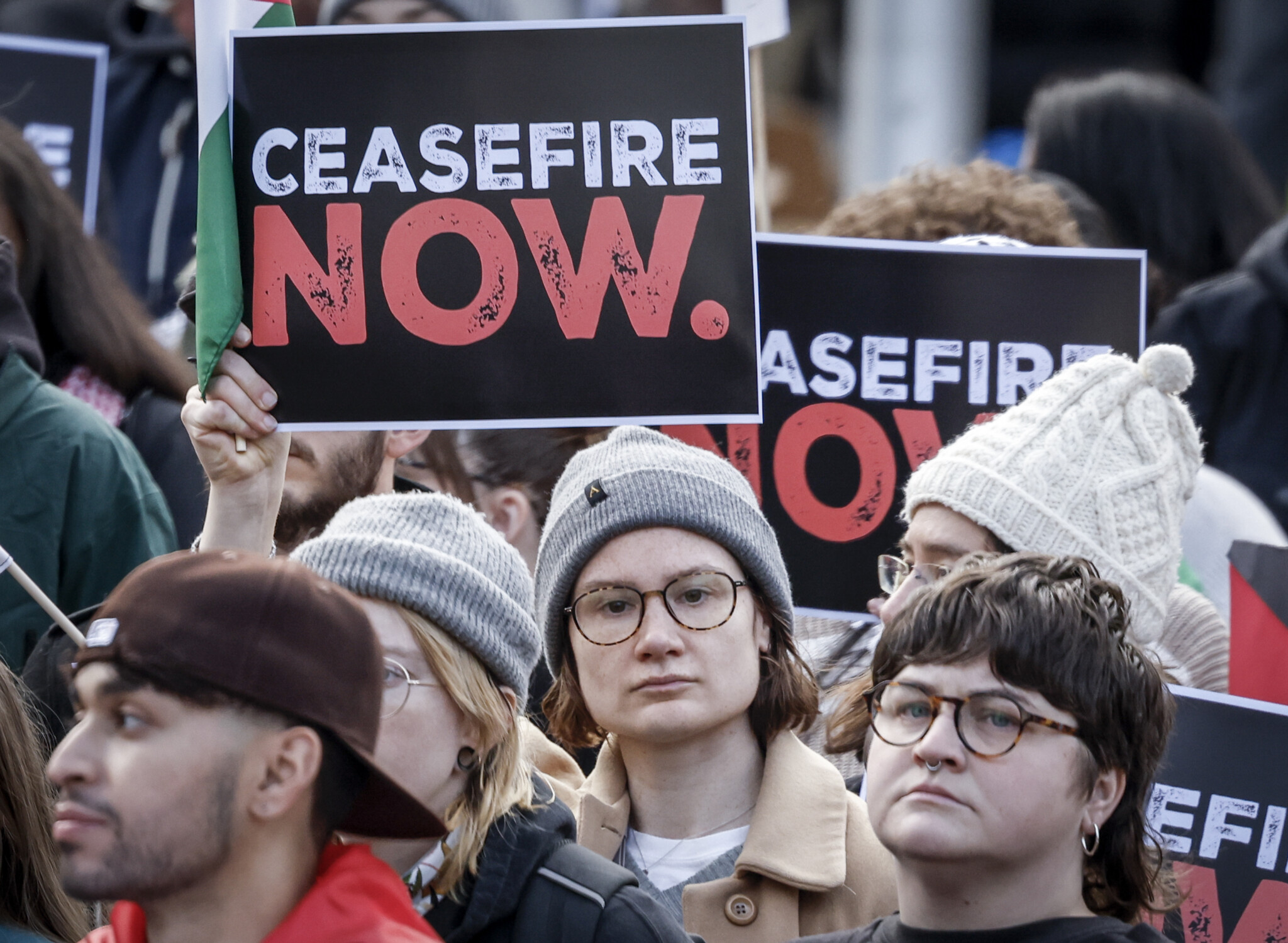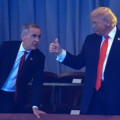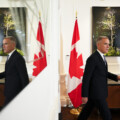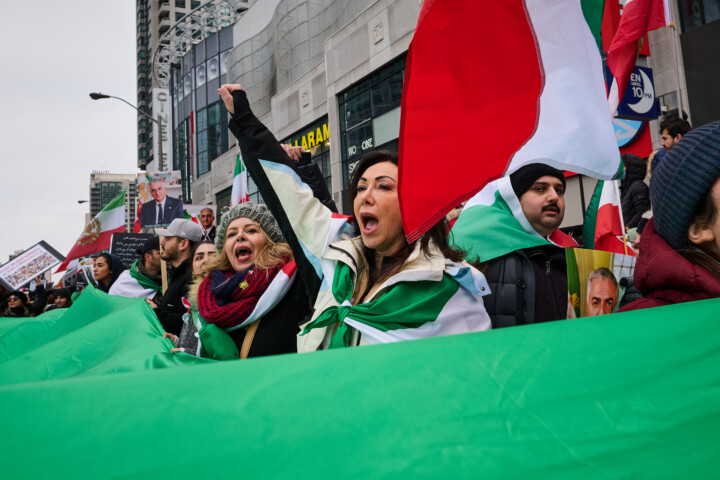How do we know when our political culture has gone bad? How do we discern when our nation’s public square is polluted? In short, it is when we lose the capacity to distinguish true and false, good and evil. It is when we forget that truth is an objective and universal reality that is not determined and arbitrated by the individual. A democracy goes awry when this foundation is undermined and replaced by moral relativism and the quicksand of competing “truths.”
Canada is following this dangerous path. Since October 7, 2023, our country’s social fabric has been shredded; open acts of Jew hatred are commonplace. Moral relativism, the belief in the acceptability of many so-called “truths,” has robbed us of the foundation that should serve to place reasonable limits on our freedoms. We must protect freedom of expression but we should revolt against clear acts of hatred and incitement to violence. Jews are being violated because Canada has lost the foundational belief in objective truth through which we could curtail those who perpetuate hate.
Ten years ago, I sat down with Myroslav Marynovych the vice-rector of the Ukrainian Catholic University in Lviv, Ukraine. I was there as Canada’s Ambassador for Religious Freedom in the wake of attacks on Ukrainian Greek Catholics and Ukrainian Orthodox clergy in occupied Crimea.
A former Soviet dissident, Marynovych served a seven-year term in a Soviet prison camp followed by five years of exile in western Kazakhstan beginning in the late 1970s. With a unique and clear-sighted perspective on evil and falsehood, he observed that one of the greatest aspects of Western liberal democracy had always been pluralism. He defined pluralism as many different voices representing many different beliefs working together to discern truth and how society should be oriented to it. Yet, he lamented that this is no longer the case in today’s Western democracies.
Marynovych opined that pluralism has become a competition between competing subjective “truths,” which are little more than opinions, with no basis in objectivity or universality. He used Russia’s invasion of Ukraine and its deployment of propaganda to illustrate this dynamic. Arguing that Putin’s fashioning of lies such as Ukraine’s government being in the grip of Nazis, or that Ukraine does not have a historic identity independent from Russia, his regime planted in the midst of today’s Western pluralism “the Russian view.” This position was initially received as legitimate by some Western governments, meriting consideration. Yet, it was always a lie. Many countries who needed to be strong allies of Ukraine offered tepid responses to the Russian invasion. The damage is done and then later the lie is uncovered.
When pluralism and the common pursuit of truth are usurped by moral relativism, by an inability to recognize objective truth and be governed by it, you know that a political culture is in precipitous decline. Lies rather than truth can come to shape the public debate. This is Canada today. A moral relativism where my opinion, my so-called “truth,” becomes the unassailable truth must not ground pluralism. In order to function, a pluralist nation such as ours must recommit to objective reality: what is true is true for all regardless of sex, race, socio-economic status, or religious or political belief.
Not all opinions and beliefs are good. Freedom of expression, freedom of association, and the other fundamental freedoms we enjoy are subject to reasonable limits as determined in a democracy. This is a core constitutional principle. In the world of religious freedom advocates, there is a cheeky aphorism that there is no religious freedom for Aztecs. Aztecs practiced human sacrifice and we recognize that murdering people is an evil thing even if a religious belief or political ideology is employed to justify it. The same applies to freedom of expression. One of the most obvious examples of Charter limits on one’s expression is that you cannot yell “Fire!” in a crowded theatre if there is none. We recognize through the right use of our reason that frenzied panic is not desirable. The courts adjudicate these limits on our fundamental freedoms.
But, even before we get to the stage of legal sanction, we must exercise our own limits on what we say and how we say it; our conscience should dictate this. At its core, hate speech comes as a derivative of being unable to recognize the human person in front of us. Our hatred impedes our ability to recognize that they bear the same dignity that we bear; that they have similar fears, hopes, desires, dreams, and the need for love that we have. This is why the current climate of hatred in our streets, on our university campuses, on social media, and in our public institutions is so utterly repugnant.
The scourge of Jew hatred is especially repugnant and it is undermining this country’s common life. The vicious and frankly bloodthirsty antisemitism of organizations such as Samidoun, the Palestinian Youth Movement, and their Islamist and woke progressive allies and shills has no place in this country.
Do you have reasoned critiques of Israeli policy? Okay. Are you concerned about Palestinians’ suffering because of the war and the terror of Hamas? Good. Speak out. Do you desire all Jews to be destroyed and Canadian society to be gutted and remade in your image? No. That is an illegitimate view that is so far from objective truth and goodness that it must be repudiated by all people of goodwill.
An ideology that advocates the death of innocents and public disorder is a false ideology. Such beliefs are contrary not only to right reason but also to the principles of our democracy: the rule of law, equality, freedom of religion, and those fundamental Canadian political goals of peace, order, and good government.
No one has a right because of their personal beliefs to engage in or promote violence.
Disagreeing with someone’s peacefully advocated views is not violence. I can disagree with you strongly without being violent, without calling for your eradication. We must confront the genuine violence advocated by those who seek to destroy human lives and shatter our peace and the vibrant common life that all of us desire.
The sooner we remember the need for objective truth as the ground of our vibrant, pluralist society the sooner we can begin to heal this country and restore its peace.










